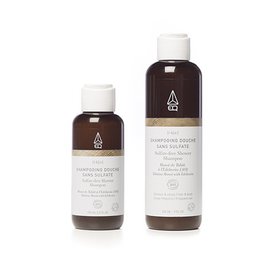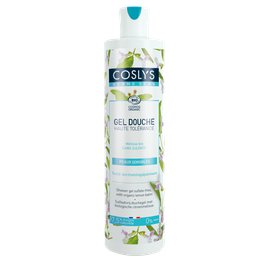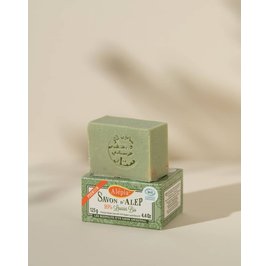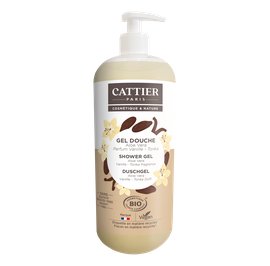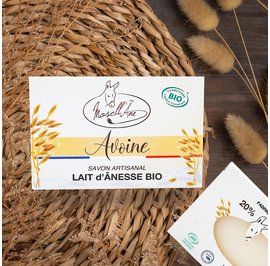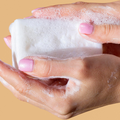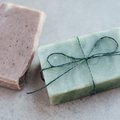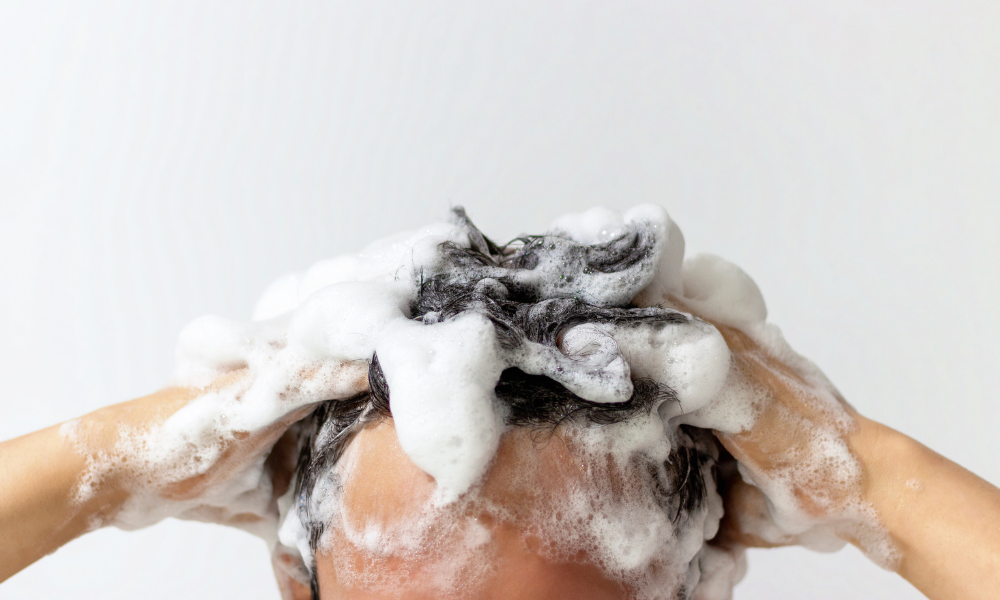
Many of you are looking at the ingredient lists of your cosmetic products to check for undesirable ingredients. This tends to be a debate where sulfates are frequently mentioned. On top of that, the increasing use of Apps that decipher the composition of cosmetic products has nutured this mistrust towards certain organic cosmetics (a similar issue with essentiel oils).
Why are sulfates controversial ? Are they allowed in organic cosmetics ? Read this article to find out !
What are sulfates and what is their role in cosmetic products ?
Sulfates are ingredients whose role in cosmetic product is to allow fatty substances to disperse in water. They offer several advantages:
-
Foaming power: Who doesn't like washing with a hygiene product that creates a nice foamy suds and gives the sensation of effective cleansing?
-
Cleansing power: Useful for ensuring the effectiveness of your shower gel or shampoo.
-
Texture: Consumers tend to love shower gels with smooth texture.
-
Quality at affordable prices for small budgets.
-
Stabilizes emulsions (for example, it allows your cream to remain homogeneous).
Sulfates can be from petrochemical origin or even natural origin (like when its derived from coconut or palm oil).
They are not only used in cosmetics, sulfates are more commonly used in detergents.
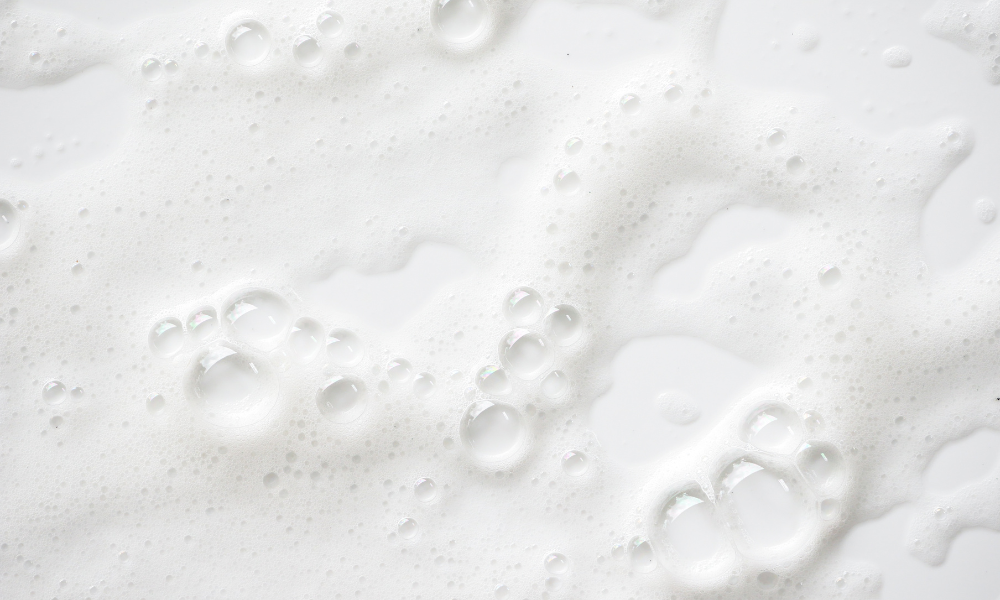
Are sulfates allowed in Cosmébio labelled cosmetics? If so, which ones?
Today, it is possible to find three categories of sulfates in labeled products:
- Inorganic sulfates (containing no carbon atoms), which are naturally present in nature (e.g., sodium sulfate) and are rarely used in cosmetics.
- Sulfated emulsifiers such as sodium cetearyl sulfate, used to disperse a fatty phase into an aqueous phase or vice versa to create a stable emulsion.
- Sulfated surfactants such as sodium lauryl sulfate (SLS) or ammonium lauryl sulfate (ALS), used to cleanse skin or wash hair.
Sulfated emulsifiers and surfactants allowed in organic cosmetic products have obtained this authorization because they are of natural origin and their processing is les polluting than other processes like ethoxylation (hydrolysis/reduction, etc.). They have less impact on the environment and comply with aquatic toxicity and biodegradability tests required by the COSMOS standard.
It is important not to confuse the authorized sulfates with Sodium Laureth Sulfate (SLES). This sulfate is not allowed because its processing involves a highly toxic compound for manufacturers: ethylene oxide (the ethoxylation process just previously mentioned).
Why are sulfates so criticized ?
Sulfated surfactants are the subject of several controversies:
Do they present a risk to our health?
Sulfates are criticized beause they can be considered as an irritant for the skin: they can dry out our skin and lead to redness and itching. It is true that if this ingredient were used pure or in high concentrations, it could be irritating to the skin.
This irritant potential is well known to manufacturers of Cosmébio-certified organic cosmetics. They are therefore particularly vigilant about the concentration of each ingredient to respect our skin's epidermis (a toxicologist also ensures the ocular and cutaneous safety of each product before it is placed on the market, as it is a regulatory requirement).
When used in organic cosmetics, they are combined with other soothing ingredients. On top of that, they are mostly present in rinse-off products, meaning they are not intended to remain on the skin, which limits the risk of irritation.
Note: the irritant nature of a product is relative to the user and how the product is used. The same product used by two different people will not be tolerated in the same way (because one may be more sensitive or apply a large amount of product, for example).
Is palm oil used to create sulfates?
Some of these surfactants may be derived from palm oil. However, rest assured, the COSMOS standard regulates palm oil sourcing with a criterion that requires sustainable certification such as RSPO (Roundtable for Sustainable Palm Oil) for the ingredients involved. For more information, you can consult our article explaing palm oil use in organic cosmetics.
Are sulfates dangerous for the environment ?
The synthesis of sulfates involves the use of sulfur compounds (sulfur dioxide, sulfur trioxide, sulfuric acid) derived from sulfur chemistry. The question of sulfates environmental impact is precisely related to this sulfur chemistry:
- It involves non-renewable resources (natural gas, petroleum).
- It has adverse effects on the environment, particularly through the formation of sulfur dioxide. This molecule is a well-known atmospheric pollutant, responsible for acid rain and atmospheric aerosols.
- The use of sulfur dioxide or sulfur trioxide leads to the SEVESO* classification of factories.
*An industrial facility that presents risks of major incidents and activities related to the manufacture, handling, storage, or use of dangerous substances.
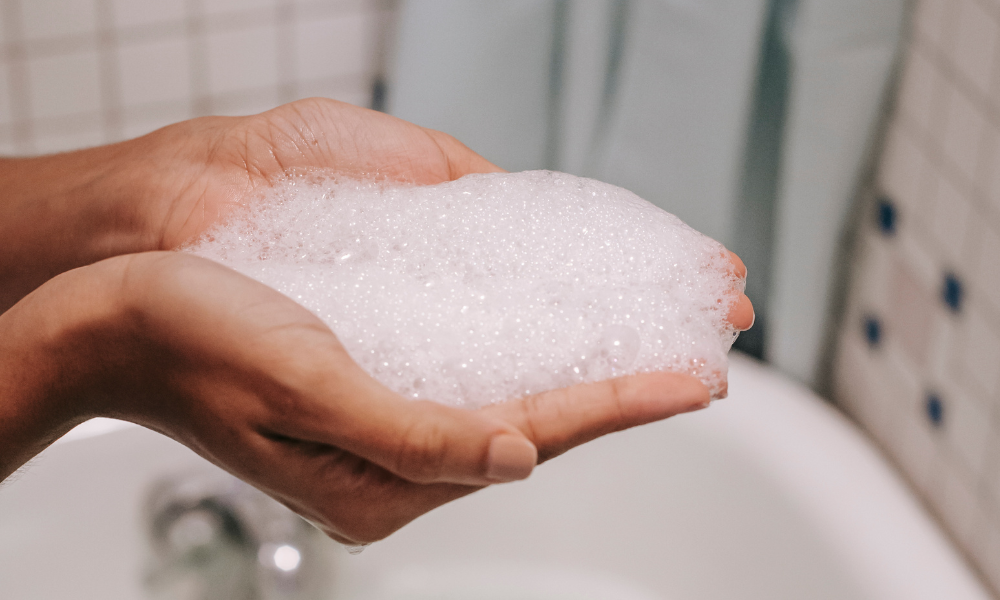
The evolution of the COSMOS Organic standard
The COSMOS standard is constantly evolving to ensure cosmetic products that are safe for us and the environment while still being effective and affordable for everyone.
Regarding the issue related to sulfur chemistry, the latest version of the COSMOS standard (Version 4), which came into effect in June 2023, provides for a gradual phase-out of sulfates in organic cosmetic products, distinguishing between sulfated emulsifiers (in non-rinse products) and sulfated surfactants (in rinse-off products)
Concerning the use of sulfated emulsifiers:
-
Are no longer allowed in products certified after June 2023.
-
Will no longer be allowed as of December 1st, 2025, in products certified before June 2023.
The use of sulfated surfactants (used in rinse-off products such as shampoos or shower gels):
-
Will no longer be allowed as of January 1st, 2029, in products certified before and after June 2023.
Are there alternatives to sulfates for our cosmetic products ?
Yes, there are alternatives that allow brands to easily replace sulfated emulsifiers.
However, this is not quite the case for sulfated surfactants. Although they are also effective, existing alternatives make formulas less pleasant to use than those with sulfates. Moreover, they are costly : the equipment needed and the raw materials are much more expensive. The six-year period that COSMOS has allowed before their total ban in organic cosmetics allows time for innovation in order to easily replace sulfates with economically viable solutions accessible to all brands and manufacturers in the cosmetic industry.
IMPORTANT : Sodium Cocoyl Isethionate (SCI) is an ingredient used by some brands to replace sulfates. SCI is not allowed in organic cosmetics! We explain why in this article.
What about products using the phrase « Sulfate Free » on their packaging ?
"Sulfate-free" is a claim that is regulated by the Cosmetic Claims Regulation. This regulation prohibits the "sulfate-free" claim as a main advertising argument. However, it is allowed when applied as useful information for consumers.
We also have an article concerning this topic: Cosmetic Claims (in french).
If you want to avoid sulfates in your organic cosmetic products, many of our labelled brands have already started formulating with alternative surfactants ! Here are a few examples:

